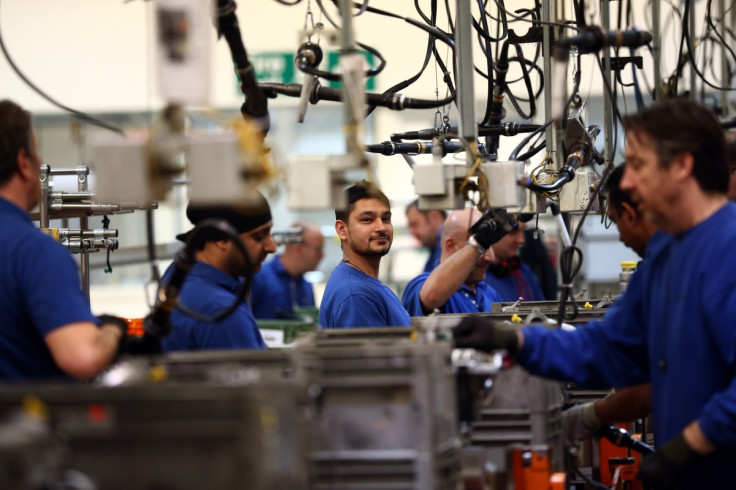UK industrial output suffers unexpected setback in September
UK manufacturing posts largest monthly gain in five months, but industrial output shrinks on month-on-month basis.

Britain's industrial production suffered an unexpected decline in September, despite the strongest gains in five months for the manufacturing sector, official data released on Tuesday (8 November) showed.
According to the Office for National Statistics (ONS), manufacturing production rose 0.6%, the biggest increase in five months, in September compared to the month before, growing faster than the 0.2% rate recorded in the previous month and beating analysts' expectations for a 0.4% increase.
On a year-on-year basis, production rose 0.2% in September, slower than the 0.5% increase recorded in the previous month, but comfortably ahead of analysts' expectations for a 1% decline.
However, overall, industrial production – a broader gauge of the industry – fell 0.4% in September, matching the pace of decline recorded in August and fell short of analysts' expectations for growth to remain stagnant.
The ONS attributed the decline to a 3.8% slowdown in the mining and quarrying industry and a 4.5% drop in the oil and gas sector, which offset the increase in manufacturing output.
On an annual basis, meanwhile, industrial production expanded 0.3% from the corresponding period in the previous year, compared with a 0.7% gain in August and forecast for a 0.8% increase.
According to a survey released last week by IHS Markit Economics, Britain's manufacturing sector contracted more than expected in October, despite a steady growth in output.
The Markit's Purchasing Managers' Index (PMI) fell from 55.5 in September to 54.3 in October, compared with analysts' expectations for a 54.5 reading, but remained well above its long-run average of 51.5.
"The upbeat tone of the latest business surveys suggests that the manufacturing sector will sustain its recent strength in the final quarter," said Ruth Gregory, UK economist at Capital Economics.
"Indeed, the fall in the pound appears to be performing its role as a 'shock absorber' in the wake of the Brexit vote, by improving the competitiveness of domestic producers."
Samuel Tombs, chief UK economist at Pantheon Macroeconomics, also indicated the decline in industrial production was unlikely to see GDP growth to be revised, although he warned higher inflation could see the industry struggle next year.
"Today's figures are insufficient to cause GDP growth to be revised down," he said. "Nonetheless, the outlook for stagnation in households' real incomes due to high inflation and lower capital expenditure by firms suggests that industry will struggle in 2017."
© Copyright IBTimes 2025. All rights reserved.






















